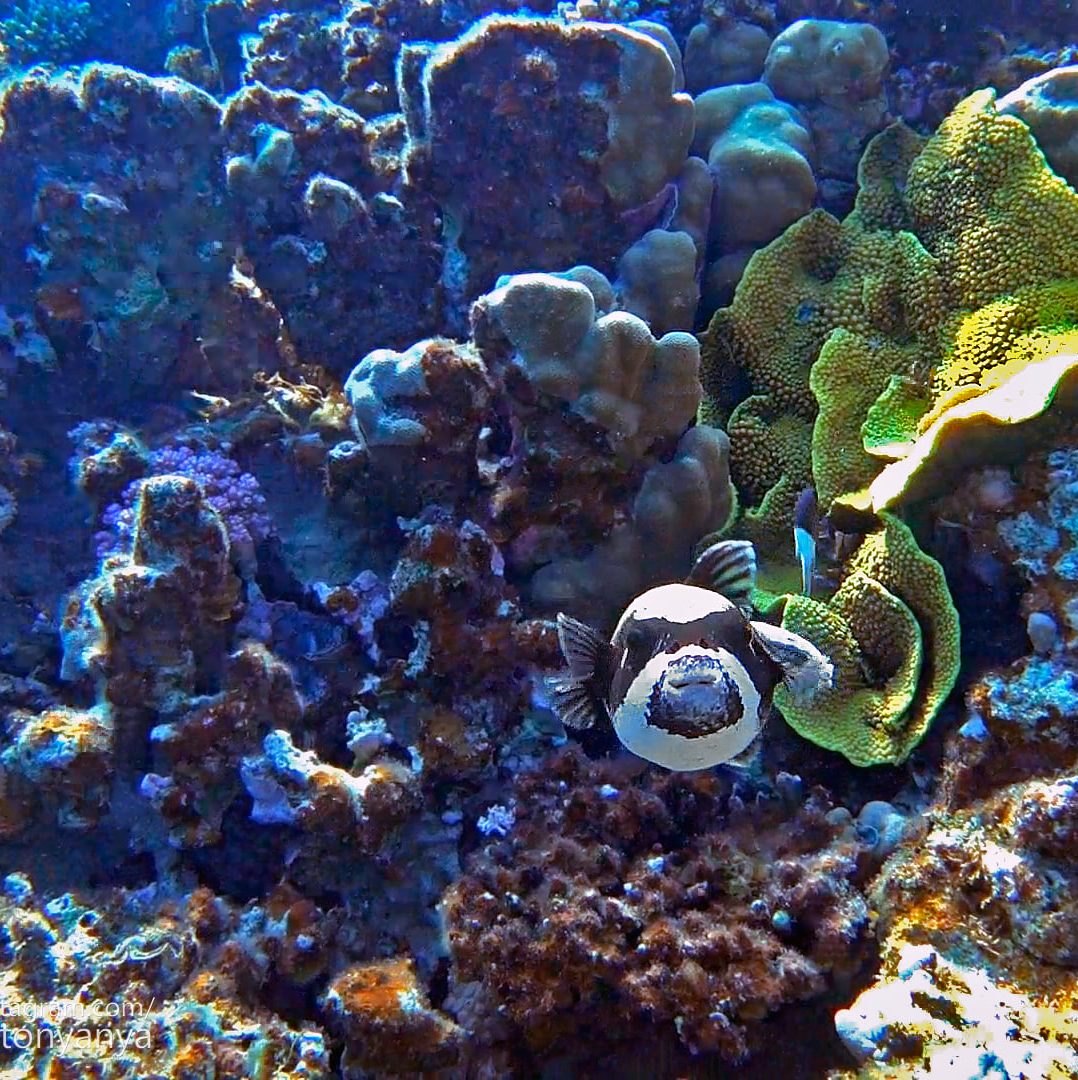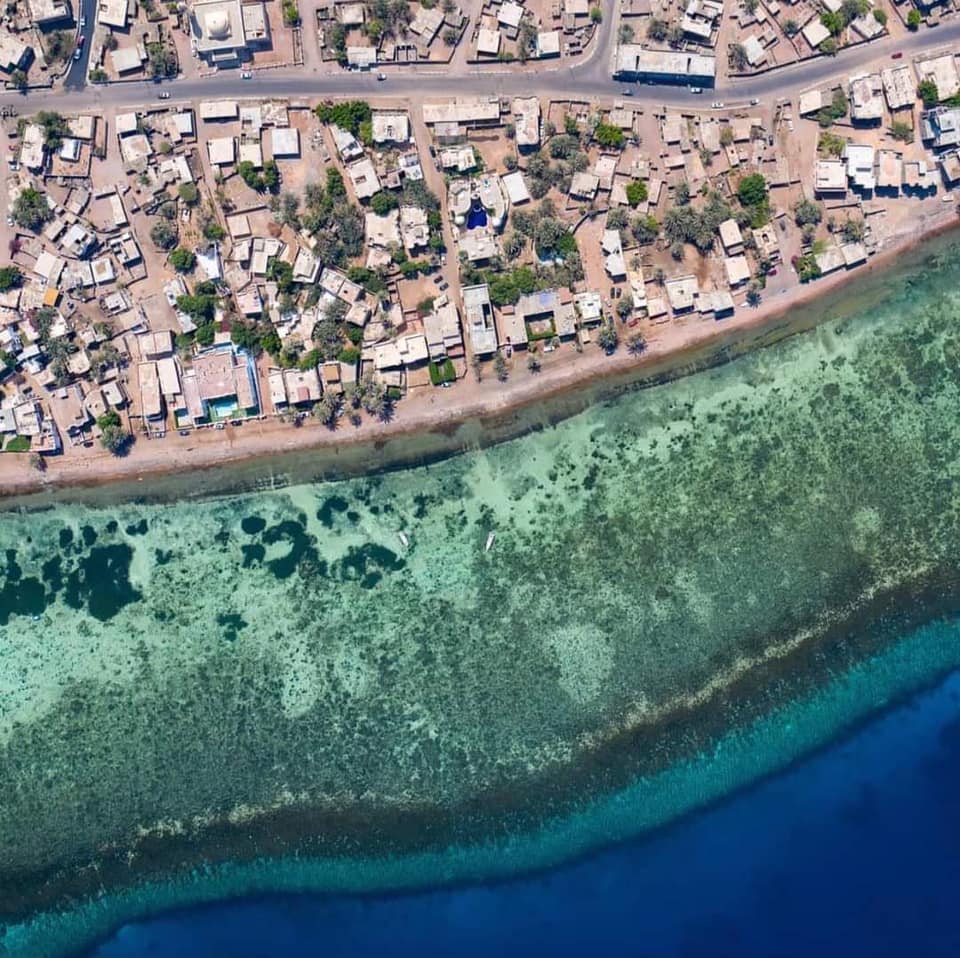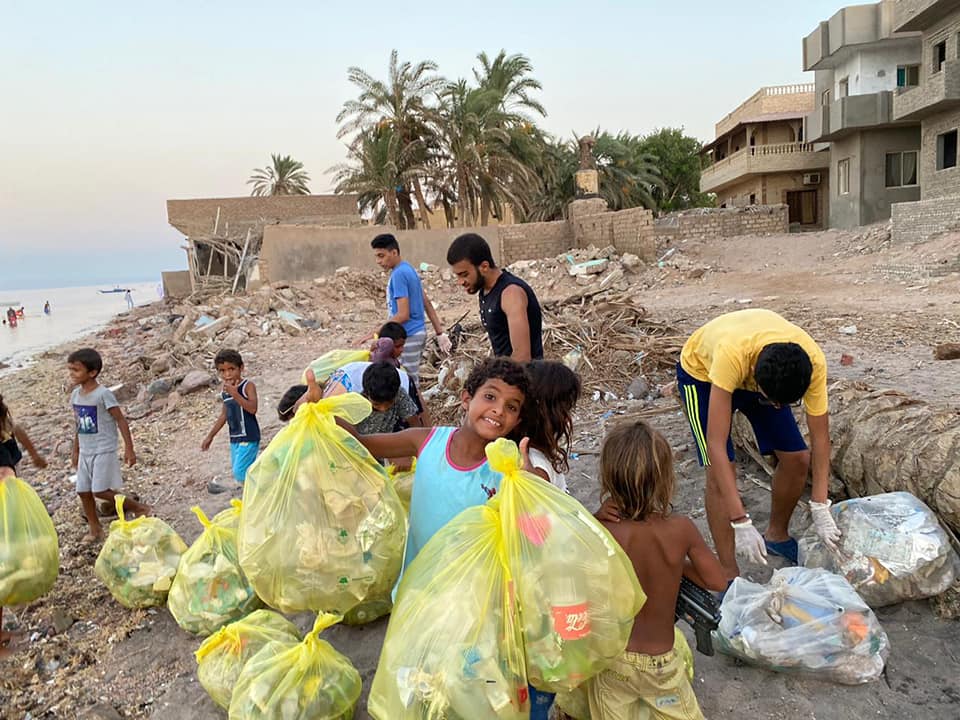Cradled by the granite mountains of the Sinai desert behind her and opening to the richness of the Red Sea before her, Dahab feels like a haven and the ‘Paradise’ of an Eden once remembered.
The crystal waters of the Gulf of Aqaba are teeming with coral and colorful fish, sea turtles, sharks and rays, and pods of dolphins. Humans swim and dive right along side these beautiful creatures and the salt of the sea washes away one’s tangle of worldly worries.
Life isn’t slow here though. Rather, it is vibrant and electric. The biodiversity of the reef is mirrored in the flurry of activity in this fifteen thousand human town. It is a symphony most curious as three Abrahamic faiths intermingle with the indigenous tribal Bedouin people, modern Egyptians and European expats. This is a melting pot where many cultures meet— including the dogs, cats and goats who roam wild in the street!

It is in the edges, those marginal spaces where different ecosystems encounter one another, that life is renewed and evolution quickens.

As those who have studied Ecology or Permaculture will know, the edge is where the Magick happens.
Unfettered by Chronological Time, the magnetic charge in Dahab is high and the days and nights flow with an eclectic energy of infinite possibility. The unlined and sand-swept streets are frequented by semi-nude snorkelers, Bedouin men in their sunproof white robes and headscarves, and Muslim women in hijabs alike. Children run barefoot in self-organized tribes. Westerners bring in a culture of yoga, vegan food and ecstatic dance, while in the background the Islamic Call to Prayer sounds five times a day. Nightly music jams at seaside cafes offer celebration and for everyone a chance to remember what truly makes us feel alive.
In this beautiful chaos resides a secret freedom and opportunity, yet also a growing sense of responsibility.
Known to Europeans for decades as one of the world’s most treasured diving and windsurfing destinations, Dahab experienced a tourism boom in the early 2000s. Investment money poured in and hotel chains began to set up shop. Now, the concrete bones of barely finished structures give the southern part of town the moniker ‘Hotel Graveyard.’ The Egyptian revolution that began in 2008 put a dramatic halt to development and derelict buildings and half-finished villas can be found right along side the still-functioning resorts and restaurants. For the right investors— those who see with the heart— these forgotten spaces offer interesting opportunities. The low cost of living and access to pretty much anything is a definite advantage. Egypt is a land where you can make anything happen with the right slight of hand…
First, there’s the trash.
Before the development boom, Dahab was a small Bedouin town known to those diehard divers and naturalist travelers who could deeply appreciate and respect the breathtaking beauty of the land and sea. Then, in came the Westernized culture and flocks of tourists, without the proper sanitation infrastructure to handle the load. Trash is a big problem, as is the stress that greed and consumption has placed on the natural environment. The coral are suffering greatly under the strain of visitors who lack the sensibility and sensitivity to take in their beauty without literally, stepping all over them.
Then, there’s the water.
This is the desert and she will teach you the meaning of managing this most precious resource. The total reliance on bottled water for drinking creates an enormous amount of plastic waste. The town’s desalinization facilities lack the additional tech to purify the water from the sea, which is then unceremoniously transported in unsanitized plastic containers on the back of pick-up trucks. Some houses have a hookup to piped city water from larger holding tanks, which is also non-potable, yet most inhabitants still rely on a weekly delivery to fill a plastic cistern in their yard. The water from showers and kitchen faucets in the most basic dwellings often comes out sandy and slightly brown.
Weekly beach clean-ups initiated by various Bedouin and Expat citizens groups attempt to curb the plastic and reef protection problem, but the underlying issue keeps the trash piling up; this is the lack of sensitization to ecology in the Egyptian people themselves.

While many Bedouin are deeply invested in caring for their land, they struggle to keep up with profit-driven business owners and weekenders from Cairo who show little respect or care. Awareness campaigns and education programs for the youth are sorely needed to lead a shift in consciousness.
A new grassroots initiative seeks to solve the plastic issue with the construction of a local small-scale recycling plant in 2021. The first item on the manufacture list is actually trash and recycling bins, something the town barely has any of. Businesses and restaurants have only recently begun to put makeshift bins outside their doors in an attempt to inspire people passing by to use them instead of the beaches, but there are no such bins along the waterfront.
Corona: An island of light in a world gone mad with fear and control.
Since Coronavirus took the world by storm things have quieted down in Dahab, yet the town itself remains remarkably untouched by the global hysteria. Located six hours from Cairo and surrounded by desert, the town is far enough away from the rest of civilization and reaps the benefits of constant sunshine and isolation. People are healthy and wise here, trusting in Nature to run her course. Lounging in one of the countless colorfully-cushioned Bedouin style sea-side cafes, one forgets there is even a problem.
Dahab means ‘gold’ in Arabic and indeed there is a little gold (and lots of quartz) in the tiny rubble sand. There is no better grounding for a place where Gaia’s elemental alchemy is evolving consciousness towards Unity.
Sinai is a land of Fire and Earth. Though the Sun blazes, merciless in summer, the land feels like a Grandmother who cradles you as you make room within yourself to grow. If experiences in town don’t guarantee growth, the desert isn’t far behind. Many people come to Dahab for a week and stay a while. Life is easy and good here, where the granite mountains touch the coral sea.
The Bedouin called this place “Waqaat Thahaab” which translates literally as “Time Goes”. This name derived from the fact that when you were there, you could easily lose track of time as the days would begin to run together. Indeed there is a timeless magick here that will sweep you off your feet and transport you on a journey of rapid evolution.
